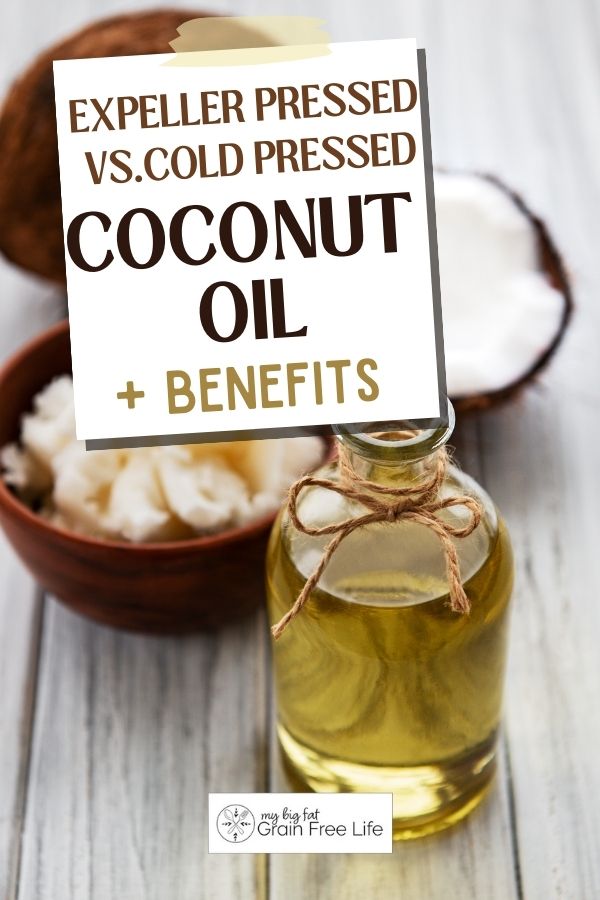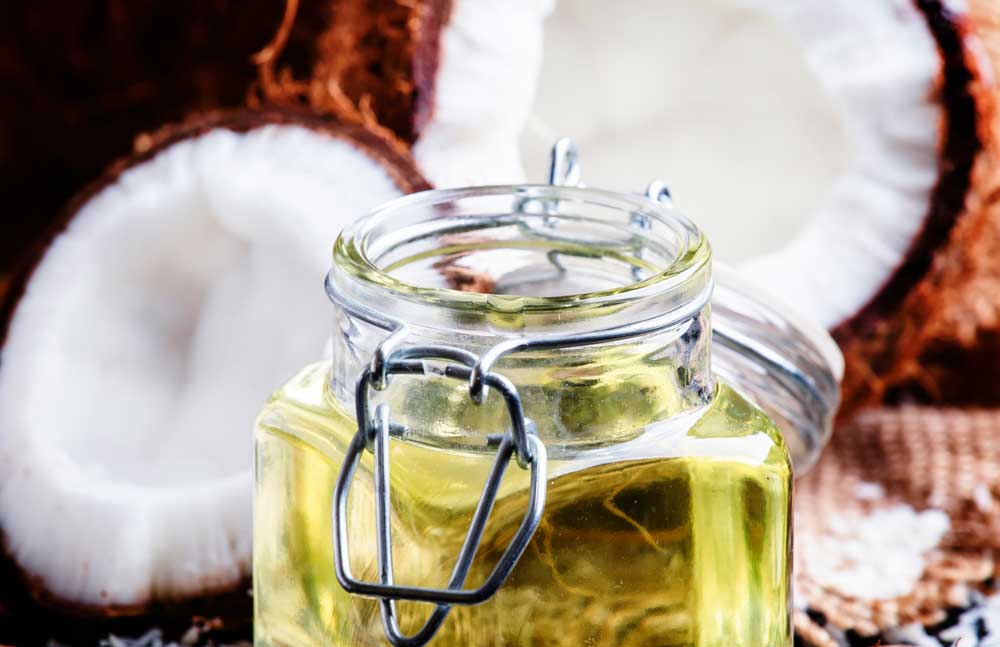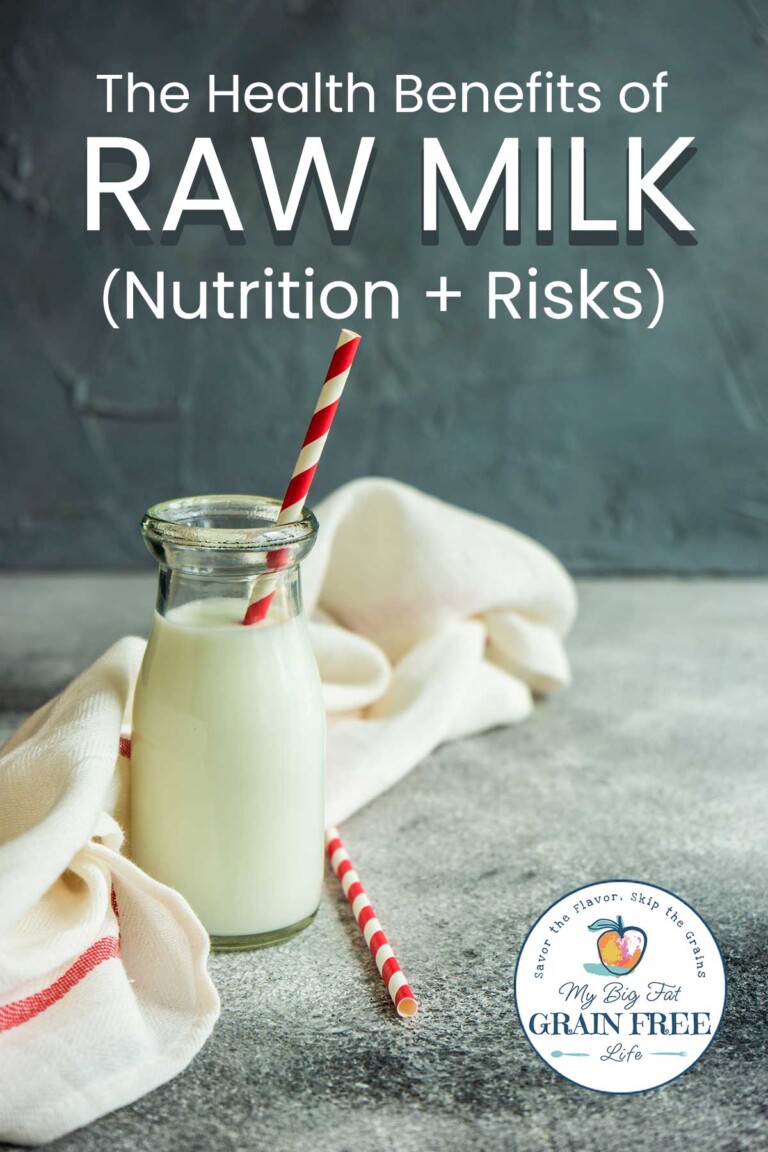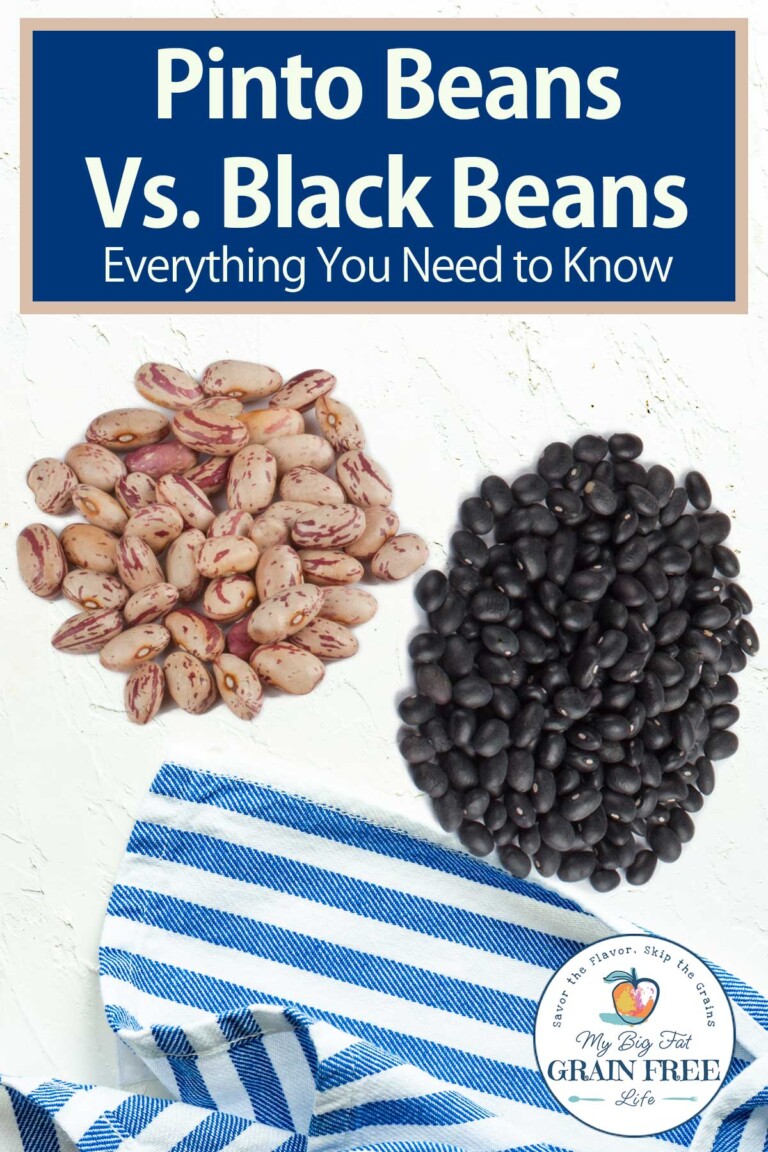Expeller Pressed Vs Cold Pressed Coconut Oil + Benefits
This post may contain affiliate links. If you make purchase after clicking a link, I may receive a commission at no extra cost to you.
Last Updated on September 22, 2023
With all the different types of oil for cooking, it can be confusing to know which ones are healthier than others. Let’s take a look at expeller pressed vs cold pressed coconut oil and explore the differences and health benefits of each type.

Expeller Pressed Vs Cold Pressed Coconut Oil
There are many different types of coconut oil that come from the different ways coconut oil is extracted from coconuts. For instance, expeller pressed vs cold pressed coconut oil means a difference in taste and nutrition. Let’s take a closer look at the various types of oil so you can make a decision about the best type of coconut oil for your home.
Coconut Oil Explained
Coconut oil is the extracted fat that comes from the fleshy white meat of the coconut kernel, and there are several different types of oil that you will find at the grocery store. It’s a healthy oil that is compliant for the autoimmune protocol, paleo, GAPS, SCD, and keto diets.
Refined
The refining process for coconut oil includes extra processing to remove any impurities in the oil through bleaching, deodorizing, or chemical refining. The result is a coconut oil with an even texture and neutral flavor.
Unrefined
Unrefined coconut oil does not have the extra processing to remove impurities after extraction. Also, the oil is usually extracted using a cold pressing method and fresh coconut meat rather than dried. This ensures that no heat may have affected the oil. The coconut oil has a light coconut taste and may also be called virgin or extra virgin coconut oil.
Virgin
Virgin coconut oil is another term for unrefined coconut oil.
Extra Virgin
Unlike olive oil, there is no difference between virgin and extra-virgin coconut oil. Extra virgin is simply another term for virgin or unrefined coconut oil.
Whole Kernel
Sometimes the inside skin of the coconut kernel is left on the coconut meat before extraction. This creates a slightly more nutritious coconut oil with a nutty flavor.
White Kernel
If the brown inner skin is removed, then you end up with a white kernel coconut oil. This oil has a milder taste and is slightly less nutritious than whole kernel coconut oil.
Coconut Oil Extraction Methods
There’s more than one extraction method for removing the oil from coconuts. These methods include centrifuge-extracted coconut oil, expeller pressing, cold-pressed oils, and the use of chemical solvents.
Expeller-pressed
The expeller pressing process involves the use of high pressure to remove the oil. The friction might involve high temperatures as a result of the friction. Expeller-pressed coconut oils are typically refined after extraction.
Cold-pressed
Cold pressed oils are coconut oils that have not been exposed to heat as a result of the refining process. The process is temperature-controlled to keep the heat below 120 degrees resulting in a high quality type of oil.
Centrifuged
Centrifuged extracted coconut oil begins with the coconuts being shelled, crushed, and ground. The coconut milk is removed from the mush. Then the mush is placed in a centrifuge and spun at high speeds to remove the oil. The final product is an unrefined oil with a strong coconut taste.
Solvent Extraction
The solvent extraction method involves the use of a chemical solvent like hexane to remove the oil from the coconut kernel.

Cold Pressed Coconut Oil vs Expeller Pressed Coconut Oil
The differences between cold-pressed coconut oil and expeller-pressed coconut oil go beyond the amount of heat the oil has been exposed to during the extraction process. Let’s look into the differences so you can make an informed decision about which is the best coconut oil for you to use in your home.
Expeller-Pressed Coconut Oil
The high pressure that’s used to remove the coconut oil causes the oil to be exposed to heat during the extraction process. As a result, expeller-pressed coconut oil is usually refined to remove any impurities.
Nutrition
The coconut oil loses a small amount of its valuable nutrients and antioxidants during extraction due to the heat.
Taste
The use of heat during the expelling process gives the coconut oil a slightly toasted and nutty flavor.
Cooking
Expeller-pressed coconut oil has a higher smoke point due to the lack of impurities in it. This makes it the best choice for cooking over high temperatures.
Cold-Pressed Coconut Oil
The temperature the cold-pressed coconut oil has been exposed to during the entire process is kept below 120 degrees.
Nutrition
Because of the low temperatures, the cold-pressed coconut oil keeps all of the nutrient content and antioxidants during the extraction process.
Taste
The cold-pressed oil has a delicate coconut flavor to it.
Cooking
Cold-press coconut oil is best used for cooking items that need less heat. It also gives the food a lovely coconut flavor.
Expeller Pressed Vs Cold Pressed Coconut Oil Comparison
The main difference between expeller-pressed oil and cold-pressed oil the the amount of heat the oil has been exposed to during the extraction process. This results in a few differences between the oils.
Nutrition: Expeller Pressed Coconut Oil vs Cold Pressed
Coconut oil that has been cold-pressed has been exposed to lower temperatures than expeller-pressed oil. This results in cold-pressed oil having more nutrients and antioxidants.
Differences: Expeller Pressed Coconut Oil vs Cold Pressed Coconut Oil
There are several differences between the two types of oil than just the nutritional content. The differences include the taste and use during cooking.
Taste: Expeller Pressed Coconut Oil and Cold Pressed Coconut Oil
Expeller-pressed oil has a nuttier toasted flavor to it. Cold press oil has a milder taste yet retains more of the coconut flavor.
Cooking: Expeller Pressed Coconut Oil vs Cold Pressed Coconut Oil
Cold pressed coconut oil is not able to be cooked at high temperatures, unlike expeller-pressed oil which has a higher smoke point.
Health Benefits of Coconut Oil
Adding organic virgin coconut oil to your diet has the potential to give you many health benefits. These benefits include burning fat, antifungal properties, and an improved immune system.
Burns Fat
There are indications that ingesting coconut oil may boost the fat-burning ability of your body. This is because the medium-chain triglycerides in the coconut oil may increase the number of calories you burn.
Great Source of Energy
Coconut oil is primarily saturated fat that’s made up of medium-chain triglycerides (MCT). The medium chain triglycerides head directly for your living where they give your body a rapid energy boost like eating carbs.
Antimicrobial Properties
The lauric acid in coconut oil helps to kill any microbes in your body. It also might keep the bacteria from reproducing without actually killing the bacteria.
Antifungal Properties
Coconut oil also has antifungal properties due to the lauric acid. The oil will also help you get rid of yeast infections.
Helps Curb Hunger
The medium-chain triglycerides in the coconut oil break down into ketones. Ketones are known to help reduce your feeling of hunger.
Great for Skincare
Coconut oil can also improve your skin health by helping moisturize your skin and preventing water loss.
Supports a Healthy Immune System
Coconut oil will help you maintain a healthy immune system by creating a hostile environment for viruses to live.
Helps Prevent Damage to Hair
Coconut oil is excellent for hair care as it will increase the strength and flexibility of your hair.
Oral Health Benefits
Coconut oil is excellent for your dental health. The lauric acid reacts with your saliva to create a substance that reduces bad bacteria in your mouth and prevents cavities and gum infections.
Source of Antioxidants
Coconut oil is an excellent source of antioxidants like vitamin K and vitamin E that help to prevent chronic diseases.
May Help Treat Alzheimer’s Disease
Coconut oil helps to provide the body with ketones that can be used as an alternative source of energy for people with Alzheimer’s Disease. This helps to offset mild to moderate symptoms.
Provides Liver Protection
Coconut oil may help to protect your liver from damage.
Helps Prevent Heart Disease
Coconut oil may be good for your heart health. It may increase the healthy cholesterol levels in your body while turning the bad cholesterol into good cholesterol.
Helps Reduce Inflammation
The antioxidants in coconut oil help to reduce inflammation by suppressing the inflammatory cells.
May Help Improve Cognitive Function
The medium-chain fatty acids in coconut oil are easily absorbed into the body. Plus the brain is able to use the MCFA’s without insulin which gives you an energy boost.
Helps Improve Digestion
Coconut oil helps to calm the digestive system while improving your gut health.
Supports Healthy Bones
The antioxidants in the coconut oil help to remove the free radicals and oxidative stress that damage your bones. Plus, the coconut oil helps to improve your calcium absorption.
May Support Weight Loss
The fats from coconut oil don’t go into the bloodstream. Instead, they head to the liver where they’re turned into energy. This may help with weight loss.
Coconut Oil Smoke Point
The smoke point of coconut oil is 350 degrees.
Storing Coconut Oil
The best option is to store coconut oil in an airtight container in a dark place at room temperature. It’s best to ensure it’s protected from external heat.
How to Check Appearance for the Extraction Process
Refined coconut oil is off-white and has a slight yellow tint to it. It will also have a smooth texture. In comparison, unrefined oil is a bright white and may contain small particles of coconut.
Coconut Oil FAQs
Here are some answers to frequently asked questions.
Which Type of Coconut Oil Should You Choose?
Choose the type of coconut oil based on its use. If you’re cooking over high heat, then use expeller-pressed coconut oil since it has a higher smoke point. If you’d like a stronger coconut flavor, then cold-pressed coconut oil is a better option.
Which is Better: Cold Pressed or Expeller-pressed Coconut Oil?
Unless you are cooking over high temperatures, it’s usually best to use cold-pressed coconut oil. It has a slightly higher nutritional content.
Is Expeller-pressed Oil the Same as Cold Pressed?
No, the cold press oil is temperature-regulated so that the heat cannot rise above 120 degrees. This helps to protect delicate nutrients in the oil.
Expeller-pressed oil is usually exposed to heat from the friction required to remove the oil.
What is the Healthiest Type of Coconut Oil?
Cold pressing allows the coconut oil to keep more of its nutritional content making it the healthiest type of coconut oil.
Why is Cold Pressed Coconut Oil Better?
Cold-pressed coconut oil is considered better since it has a delicate coconut flavor and is slightly more nutritious.
Is Expeller-pressed Coconut Oil Good for You?
Yes, it has almost the same nutrients as cold-press coconut oil and is able to be used for cooking at higher temperatures.
Does Expeller-pressed Coconut Oil Taste Like Coconut?
No, Expeller-pressed coconut oil doesn’t have a strong coconut flavor. Instead, it has a toasted and nutty taste.
How Long Does Coconut Oil Remain Fresh?
If stored correctly, refined coconut oil can last between 18 and 24 months. Unrefined coconut oil can last up to 5 years.
Other Healthy Oils
There are other healthy cooking oils you can use:
- Extra Virgin Olive Oil: Topping the list, extra virgin olive oil is derived from the first pressing of olives, retaining the pure, rich flavor. olives. There are many health benefits of olives. It’s loaded with heart-healthy monounsaturated fats and antioxidants that can fight inflammation.
- Avocado Oil: With the highest smoke point of all plant oils, avocado oil is an excellent choice for any cooking method. It’s rich in lutein, an antioxidant that benefits the eyes, and monounsaturated fats, which can help reduce bad cholesterol levels.
- Flaxseed Oil: While not suitable for cooking due to its low smoke point, flaxseed oil can be used in salad dressings and smoothies. It’s a fantastic source of plant-based omega-3 fatty acids, which play a crucial role in brain function and heart health.
Compare the health benefits of coconut oil vs avocado oil.
You Might Also Enjoy Reading: Learn more: What are Seed Oils? Are They Really Bad for Your Health?
Final Summary
The extraction method that is used to remove oil from coconuts results in different types of oil. The major difference between the oils is the amount of nutrients that remain in the cold-pressed oil versus the other methods where the oil has been exposed to heat. In addition, you may find that the flavor of the oils varies from a delicate raw coconut taste to oils that have a nutty flavor.
Sources
- https://www.foodnetwork.com/how-to/packages/food-network-essentials/refined-vs-unrefined-coconut-oil
- https://thecoconutmama.com/best-coconut-oil/
- https://thecoconutmama.com/virgin-coconut-oil-vs-extra-virgin-coconut-oil/
- https://www.kimbertonwholefoods.com/decoding-coconut-oil/
- https://www.erpublication.org/published_paper/IJETR022982.pdf
- https://thecoconutmama.com/expeller-pressed-coconut-oil-vs-cold-pressed/
- https://www.healthline.com/nutrition/top-10-evidence-based-health-benefits-of-coconut-oil#TOC_TITLE_HDR_5
- https://www.medicalnewstoday.com/articles/302809
- https://mycocosoul.com/blogs/ayurvedic-skin-care/virgin-coconut-oil-health-benefits
- https://draxe.com/nutrition/coconut-oil-benefits/
- https://tirumalaacoconutoil.com/great-ways-to-store-coconut-oil-and-prevent-it-from-spoiling/
- https://www.centrafoods.com/blog/how-is-organic-virgin-coconut-oil-different-than-refined







